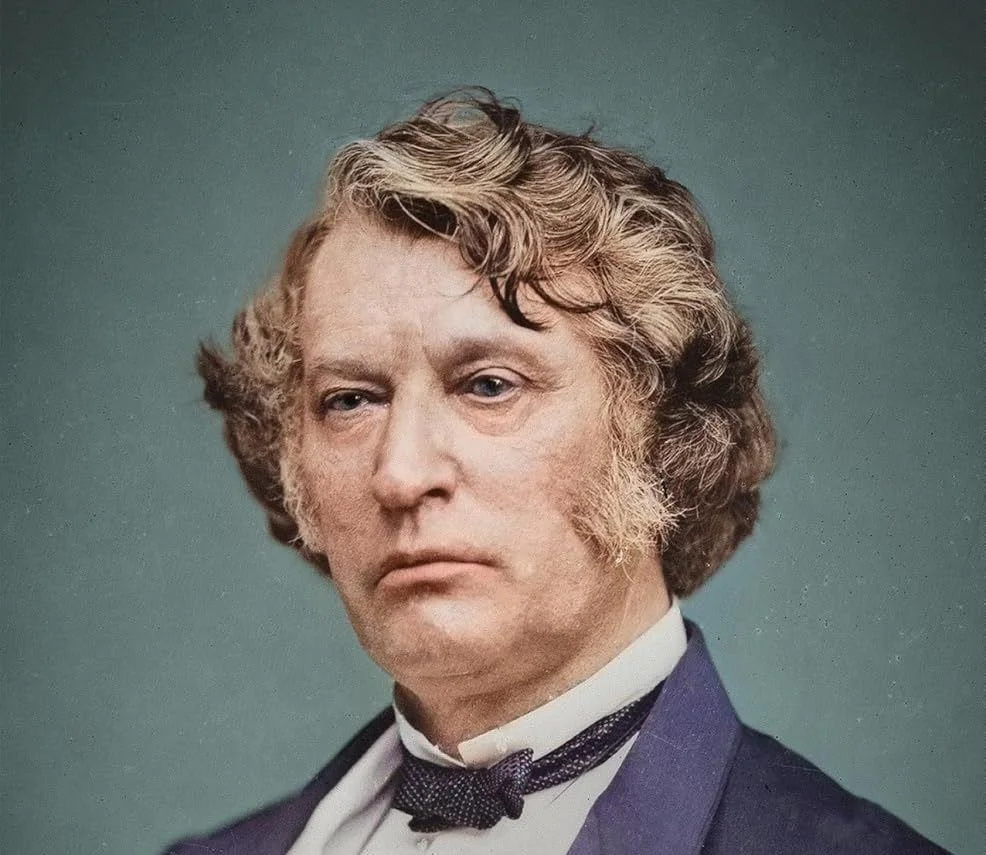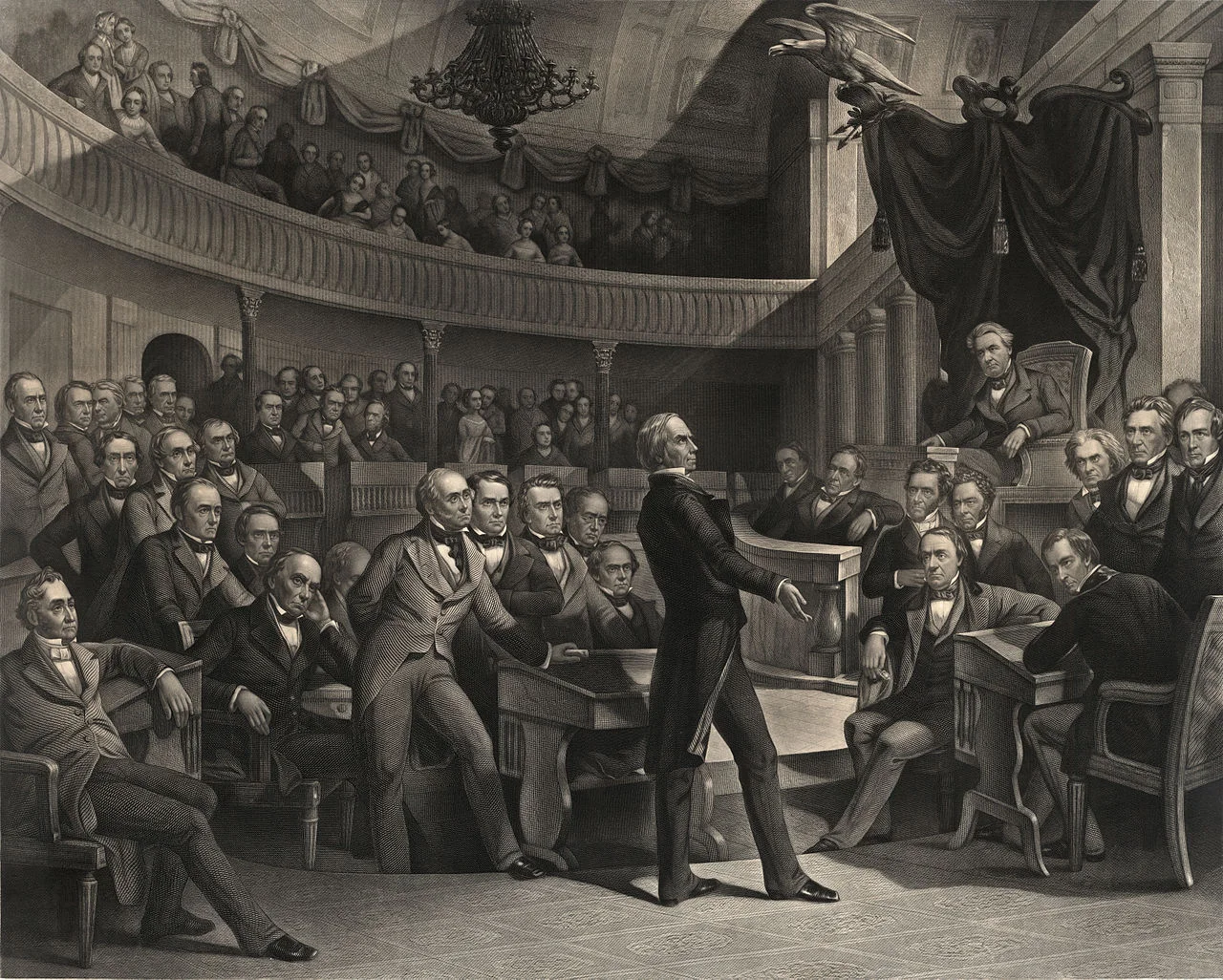.avif)
Trump v. Kimmel
Trump and Carr should have left the fool alone.
The latest chapter in the Jimmy Kimmel saga came on Monday, September 22, when ABC formally announced that Kimmel’s “indefinite” suspension was over as of Tuesday evening. The announcement did not refer to the one-two punch spearheaded by the chairman of the Federal Communications Commission, Brendan Carr, and strongly backed by President Donald Trump, to pressure ABC to take down the show Jimmy Kimmel Live! But the latest word from the White House denied that Kimmel’s suspension was due to his threat, still lingers given that as of now that Sinclair plans to preempt his show.
However, the episode ultimately unfolds; it is essential to understand the institutional framework in which this unfortunate controversy arose.
It all started with Kimmel’s foolish remark:
We hit some new lows over the weekend with the MAGA gangwhich still lingers, given that, as of now, desperately trying to characterize this kid who murdered Charlie Kirk as anything other than one of them and doing everything they can to score political points from it.
Kimmel’s insinuation was false. In a sane world, Kimmel never should have misrepresented the motivations and political identity of the shooter and he should have quickly apologized for his tasteless remark. But also in a sane world, the FCC head and President Trump should not have unleashed their attack dogs on either Kimmel or ABC.
Recall that the episode began when Carr denounced Kimmel as “truly sick” and then made the not-so-subtle threat, “This is a very, very serious issue right now for Disney. We can do this the easy way or the hard way. These companies can find ways to take action on Kimmel or there is going to be additional work for the FCC ahead,” to counter how Kimmel had “misled” the public.
Then Trump added fuel to the fire:
Jimmy Kimmel was fired because he had bad ratings more than anything else, and he said a horrible thing about a great gentleman known as Charlie Kirk. Jimmy Kimmel is not a talented person. He had very bad ratings and they should have fired him a long time ago. So you know, you can call that free speech or not, he was fired for lack of talent.
The powerful but implicit context for this entire sequence of events was that the current law makes it clear that the FCC possesses the power to license broadcasters, and thus the power to terminate them as well, as Carr threatened to do. But before exploring the extent to which the licensing power gave the FCC a free hand to pummel ABC and Kimmel (and all the employees on his show) into submission, it is useful to step back and ask what would happen if there were no FCC to run this licensing system. The obvious parallel is to print media, where the general view has long been that the government has no power to license anything from the smallest pamphlet to the largest newspaper chain, especially because of its deep, even justified, resentment of anything that was published. Thus, the Supreme Court in Miami Herald Publishing Co. v Tornillo (1974) struck down on First Amendment grounds a law that required a newspaper to grant the right of reply to political candidates whom the newspaper had criticized. The First Amendment’s protection not only struck down the reply statute but also any governmental effort to limit media self-control.
The choice of material to go into a newspaper, and the decisions made as to limitations on the size and content of the paper, and treatment of public issues and public officials—whether fair or unfair—constitute the exercise of editorial control and judgment. It has yet to be demonstrated how governmental regulation of this crucial process can be exercised consistent with First Amendment guarantees of a free press as they have evolved to this time.
It was also well understood in Tornillo that not all speech was protected, and that the state could take steps to sanction defamation, imminent threats to public safety, and monopoly. Kimmel’s remarks did not brush against any of these well-established limitations on freedom of speech, all of which are consistent with the general prohibitions against the use of force and fraud, which at a minimum, are necessary for any free society to retain its own integrity against enemies both internal and external. But, as I recently argued here, offensive and tasteless remarks do not come within a country mile of these justifiable limitations. Thus, government action targeting such statements would be summarily blocked by a court. Systems of private enforcement are more protective of freedom of speech than any top-down system in which parties are entitled to access to the press only after they have received the government's blessing.
It is not impossible to have a system of property rights that does without a government license. In the early 1920s, during the era of radio, there was no Federal Radio Commission to assign frequencies or issue licenses. In the 1926 decision in Tribune Co. v. Oak Leaves Broadcasting Station, Inc., Tribune Co. was successful in its effort to block Oak Leaves from blocking on or near its frequency, suggesting boundary lines (adjusted for the width needed for broadcasting) might be set using a bottom-up system to create distinct property rights. As the number of users increased, the frequencies interfered with each other, so Herbert Hoover, the then-enterprising Secretary of Commerce, called them all in, rationalized the interference problem, but then made the fatal mistake of insisting that the new set of licenses meet certain technical conditions on how to use their frequencies, how long they could hold their licenses, and what they could say under their licenses. He should have followed the advice the late Ronald Coase issued in 1959, which was to sell off the frequencies so that they became just another species of private property, with strong protections against speech regulation and cancellation. Under that regime the FCC is in no position to make any threats. But, instead, to use the fatal words of Felix Frankfurter in NBC v. United States (1943), the FCC was not just to police the frequencies but also to determine the “composition of the traffic,” when neither he nor the FCC had the foggiest notion of how that might be done.
So why that additional power? In Red Lion v. FCC (1969), the Supreme Court compounded the problem by insisting that extra control was justified by “spectrum scarcity” that made it “idle to posit an unabridgeable First Amendment right to broadcast comparable to the right of every individual to speak, write, or publish.” However, no auctioning off of the frequencies took place, which would have allowed private parties to decide who could use their frequencies in a decentralized manner, thereby giving no president or commissioner any special power to sanction speech by threatening to suspend or revoke a license. Indeed, if Trump and Carr were just ordinary citizens, they might (apart from official immunity) have been held liable in defamation for their obviously false statement that Kimmel lost his job because ABC had had its fill of his “obvious lack of talent.”
It does not follow, however, that now that licenses must be issued, government officials can do whatever they want to bully a private party, which is also Trump’s modus operandi in dealing with universities, immigration, access to federal government legal offices, the protection of intellectual property, and tariffs. The root problem is that he does not realize that holding a public office is a public trust, so public officials are bound by fiduciary duties of care and loyalty that prevent them from acting as if they owned the frequencies and could do whatever they want in granting and denying access to them.
In most areas, the presence of market competitors is such a powerful constraint that the prospect of government regulation on issues such as minimum wages and retirement benefits is simply an opening for the abusive exercise of government monopoly power. That calculus of risk is very different when customers cannot find another provider if the only available one misbehaves. There are, accordingly, powerful limitations on what any government regulator can do with its monopoly powers over the parties that it regulates in light of these general principles. The basic constitutional rules limiting state monopoly power follow the rules that govern private institutions with similar powers, most notably common carriers (such as railroads) and public utilities (including electric and power companies), which do not have the power to exclude individuals because they may take offense at their policies. Hence, the private electric company cannot exclude from service a newspaper that takes political positions the utility does not like, even if it can sanction them for nonpayment of bills or for reselling the power supplied for its use at a profit.
State monopolies follow the same position. No license can be withheld because an applicant has views that are different from those of the head of the FCC or the president. Similarly, no license can be removed or suspended for the same reasons. These limits on executive power are entirely necessary to prevent the state from using its inordinate powers to target individuals or institutions it dislikes, or those who speak critically of it. And it is painfully evident that it cannot, therefore, even make threats to induce private broadcasters to submit to its commands, as Carr thought was within his powers. The old limitations on government powers should carry over to the new age, not only the suspension or cancellation of licenses but also on any merger or acquisition subject to FCC review.
Richard A. Epstein is a senior research fellow at the Civitas Institute. He is also the inaugural Laurence A. Tisch Professor of Law at NYU School of Law, where he serves as a Director of the Classical Liberal Institute, which he helped found in 2013.
Constitutionalism

Amicus Brief: Hon. William P. Barr and Hon. Michael B. Mukasey in Support of Petitioners
Former AGs Barr and Mukasey Cite Civitas in a SCOTUS Brief

Rational Judicial Review: Constitutions as Power-sharing Agreements, Secession, and the Problem of Dred Scott
Judicial review and originalism serve as valuable commitment mechanisms to enforce future compliance with a political bargain.

Supreme Court showdown exposes shaky case against birthright citizenship
Supreme Court will hear challenges to Trump's order ending birthright citizenship, testing the 14th Amendment's guarantee for babies born in America.

Charles Sumner’s Harmony with the Declaration
Sumner used the Declaration to increase the Constitution’s pursuit of forming a more perfect union.

Men and Women: Equal but Beautifully Distinct
Powerful interests are being served, but they are not those of young women competing in adolescent sports, or the larger need of our society to know that its words, laws, and public speech conform to the reality that we did not summon into being.
.avif)

.avif)










.avif)



